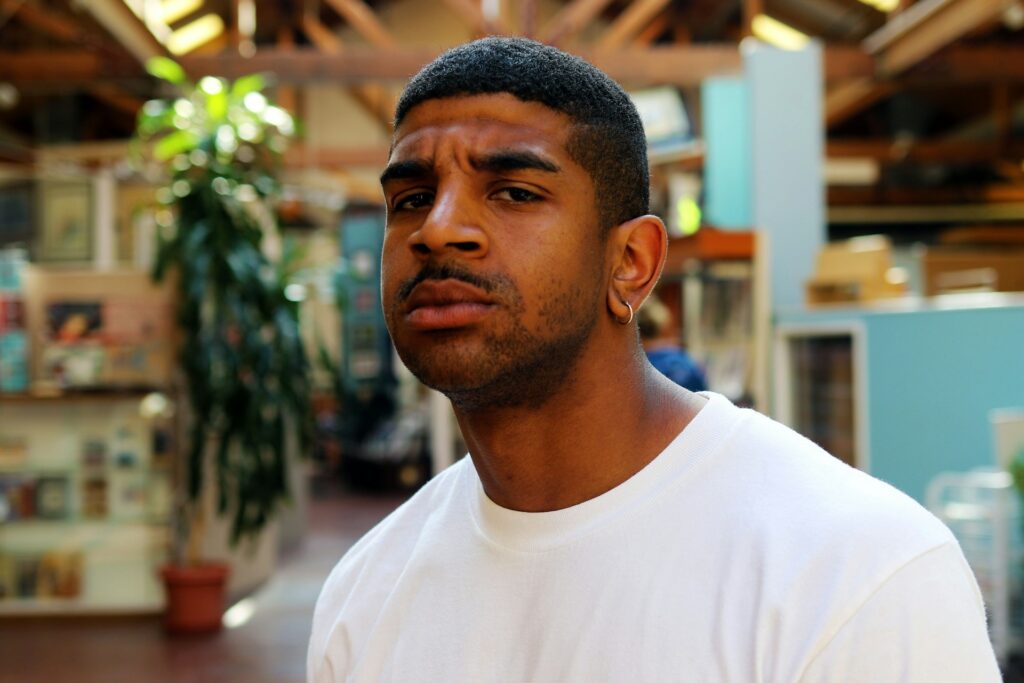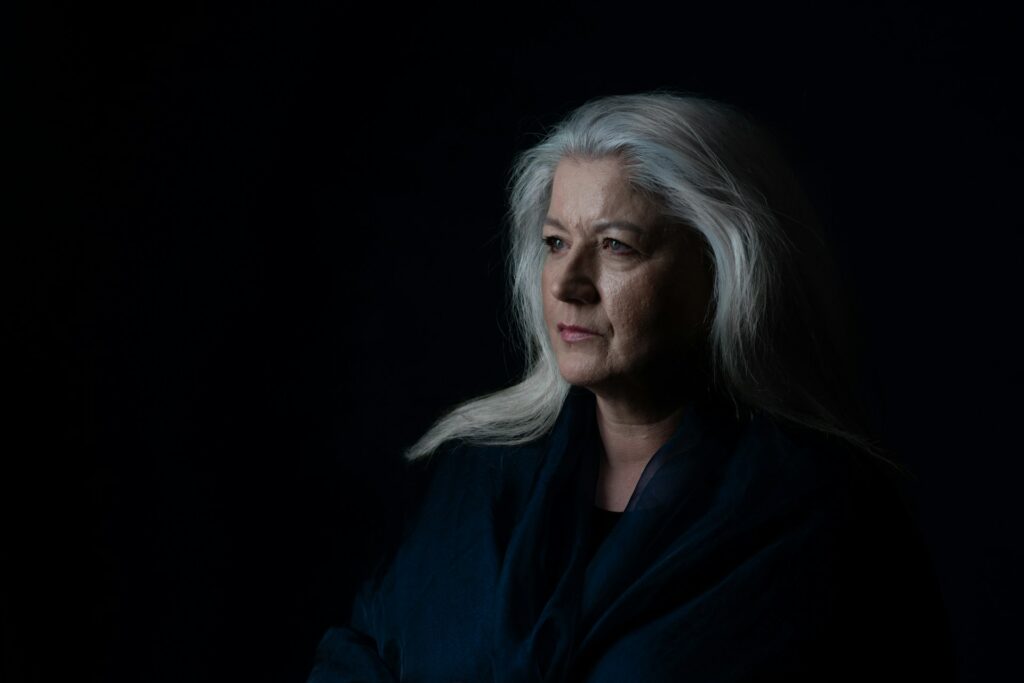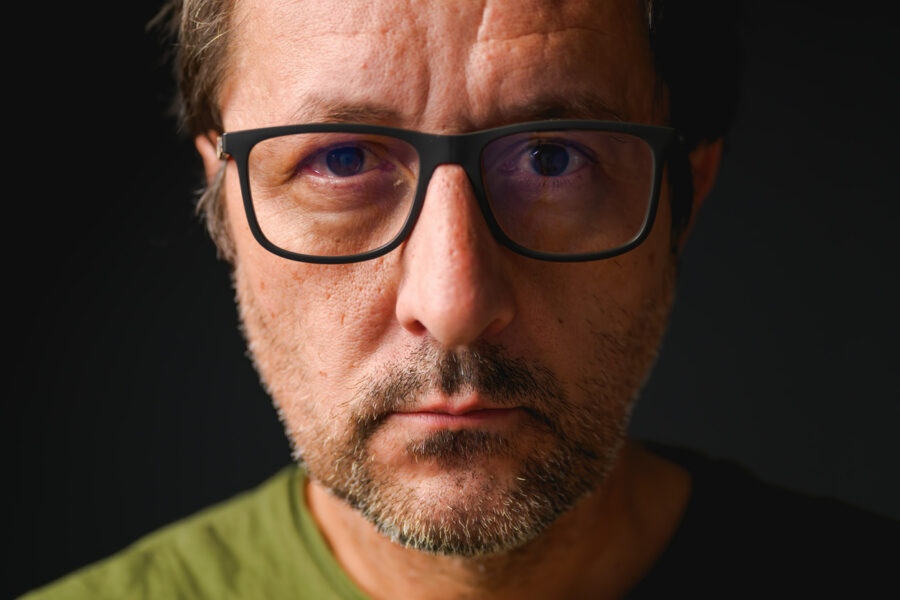Abuse changes how people speak—not just to other people, but to themselves.

Long after the traumatic situation ends, certain phrases tend to stick in their lexicon. These things may sound harmless or even polite on the surface, but underneath, they often carry the weight of fear, guilt, or survival. These are the quiet things people who’ve experienced abuse often say without realising they’re still protecting themselves.
1. “It’s fine, don’t worry about it.”

This is often used to smooth things over quickly, even when it’s not really fine. People who’ve experienced abuse may feel unsafe expressing discomfort or disappointment, so they brush it aside to avoid conflict. It becomes second nature to minimise their own needs to keep the peace. Even when someone genuinely wants to help, their instinct is to stay small and avoid drawing attention to themselves.
2. “I’m probably just overreacting.”

That self-doubt often comes from years of being told their feelings were too much or invalid. When someone constantly questioned their reactions, they learned to do it themselves before anyone else could. Now, even reasonable responses come with hesitation. They second-guess everything because it feels safer to doubt themselves than risk being told they’re wrong again.
3. “I’m sorry, I don’t know why I said that.”

People who’ve been in abusive environments often apologise reflexively, even when they haven’t done anything wrong. It’s a way of softening the atmosphere or trying to prevent a reaction before it happens. They’re used to walking on eggshells, so they apologise not out of guilt, but out of habit. The goal isn’t clarity; it’s safety, even if that means erasing themselves a little bit.
4. “It’s not that big of a deal.”

Downplaying pain or mistreatment becomes a survival strategy. If everything stays small, it feels more manageable, or at least less likely to trigger someone else’s anger or disapproval. However, the truth is, it often is a big deal. They’ve just learned to shrink their experiences down so people won’t get uncomfortable, or so they won’t feel like a burden.
5. “I’m just being difficult.”

This one usually comes from a deep place of shame. Somewhere along the way, they were taught that asking for anything—time, space, honesty—made them a problem. So now, when they speak up, they assume they’re being annoying. They label themselves as difficult because that’s what they were told they were when they tried to have boundaries.
6. “It was my fault too.”

Responsibility becomes blurred in abusive situations. People learn to take blame for things that weren’t theirs just to keep things from escalating, or because they were constantly told it was their fault. Now, even when they weren’t wrong, guilt sneaks in. They spread the blame around to make it easier to justify what happened, or to keep from fully confronting the cruelty they experienced.
7. “I don’t want to cause any trouble.”

They’re often more afraid of conflict than most people realise. Even simple requests or honest feedback can feel risky, so they hold back or sugarcoat their words to avoid tension. This isn’t just about being polite; it’s about self-protection. When someone learns that speaking up leads to punishment or shame, staying quiet feels safer, even when it costs them.
8. “I’m used to it.”

Whether it’s unfair treatment, lack of support, or feeling invisible, people who’ve lived through abuse often normalise it. Admitting it hurts might open the door to feelings they’ve spent years avoiding. So they settle for less and tell themselves it’s fine. Saying “I’m used to it” is often code for “I don’t expect anything better, because I’ve learned not to.”
9. “I don’t really have a preference.”

They’ve often been taught that having preferences or making decisions leads to pushback, criticism, or being shut down. So they default to neutrality, even when they care deeply. It becomes easier to hand the reins over than to risk being told their choice is wrong. But underneath that passiveness is someone who may not feel like their opinion holds weight.
10. “I’m just being dramatic.”

This is often a pre-emptive strike. Before someone else can accuse them of being too emotional, they say it themselves. It’s a way of cushioning what they feel before it gets dismissed. They’ve been made to believe that emotional honesty equals weakness. So now, even when something genuinely hurts, they wrap it in a joke or a disclaimer to make it easier to swallow.
11. “I can handle it.”

People who’ve experienced abuse often carry everything on their own, not because they want to, but because they’ve learned they can’t rely on anyone else. Saying “I can handle it” becomes a shield against disappointment. They’ve been let down before, so independence becomes a form of protection. Even when they’re exhausted, asking for help feels like a risk they’d rather not take.
12. “I probably misunderstood.”

After years of being told they were wrong, forgetful, or confused, people start to doubt their own perception. Even when they’re clearly in the right, they second-guess what they saw or heard. It’s not a lack of intelligence. It’s a side effect of gaslighting. They’ve learned to mistrust themselves as a way of keeping peace with people who wanted control.
13. “I don’t really talk about that.”

This tends to come with a quiet wall. Certain topics are so wrapped up in pain or shame that the easiest path is to shut them down quickly. Talking about them risks judgement, awkwardness, or worse, being misunderstood. So, instead of opening up, they steer the conversation away. It’s not about secrecy; it’s about preserving emotional safety in a world that hasn’t always earned their trust.
14. “I’m probably just being sensitive.”

They were likely told this repeatedly whenever they reacted to hurtful behaviour. As time went on, they internalised the message that their emotional responses were flawed or excessive. Now, even reasonable reactions feel suspect. Calling themselves “too sensitive” becomes a reflex—not because it’s true, but because they’ve been trained to dismiss their own discomfort.
15. “I don’t want to be a burden.”

This runs deep for many people who’ve been abused. They were either made to feel like a nuisance, or were punished for needing anything at all. So now, they’re hyper-aware of taking up space. Even basic needs feel like impositions. They’d rather suffer quietly than risk being seen as needy because once, that label came with consequences.
16. “I just want everyone to be okay.”

This sounds kind on the surface, and often it is. However, for people who’ve experienced abuse, it can also come from a survival pattern—making sure everyone else is calm so things don’t spiral out of control. They often take on the emotional responsibility for the whole room. Keeping the peace becomes a way of staying safe, even if it means ignoring their own needs in the process.


